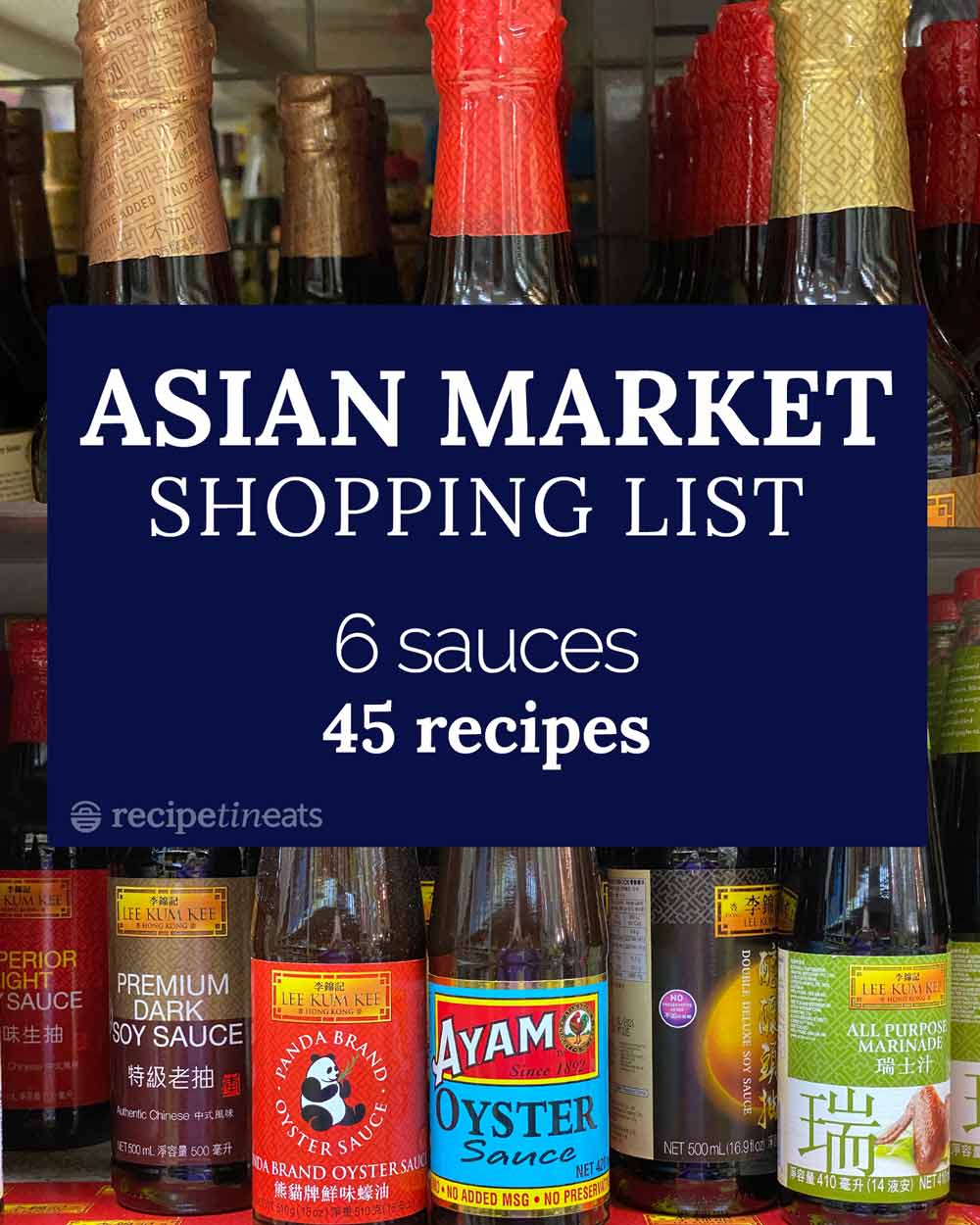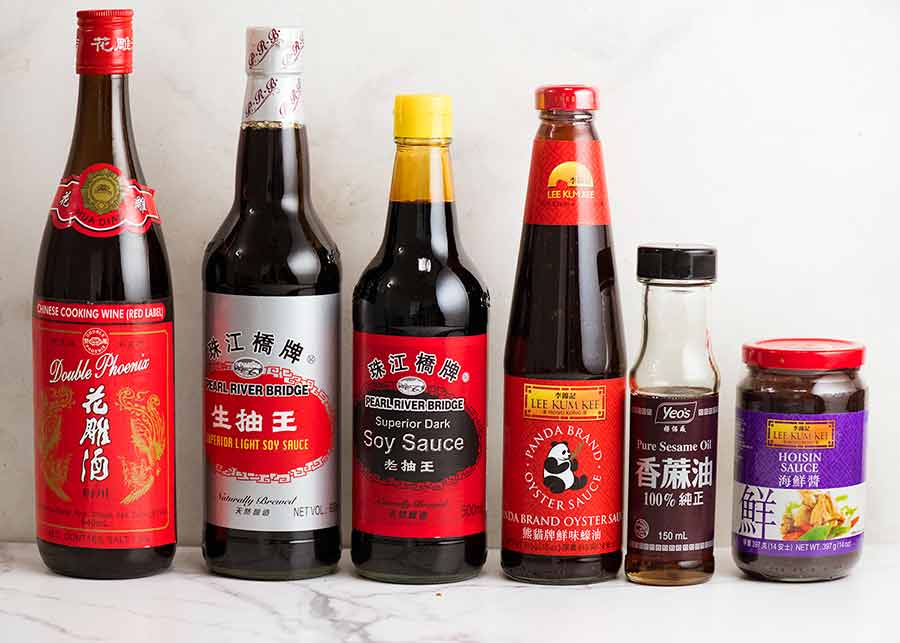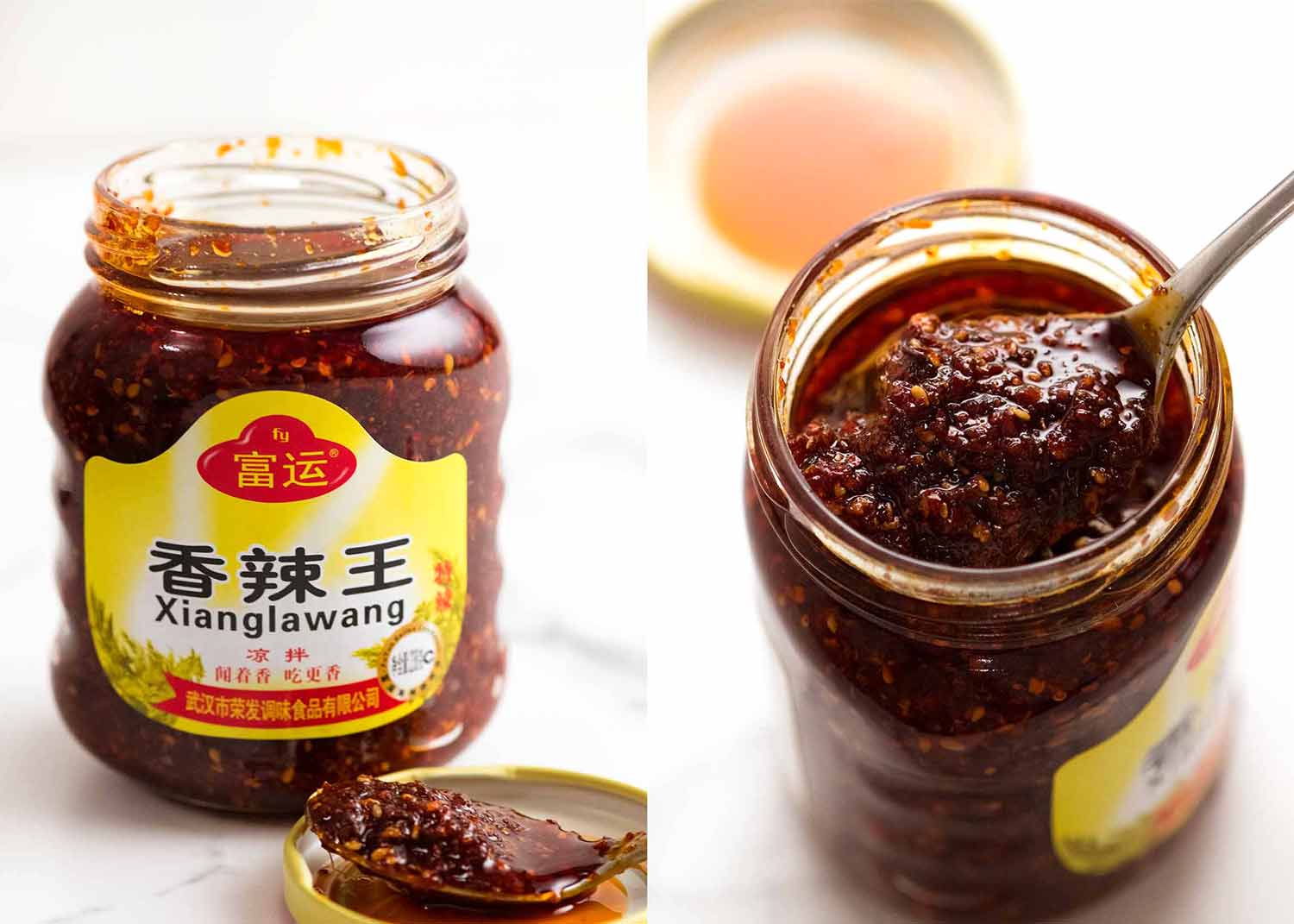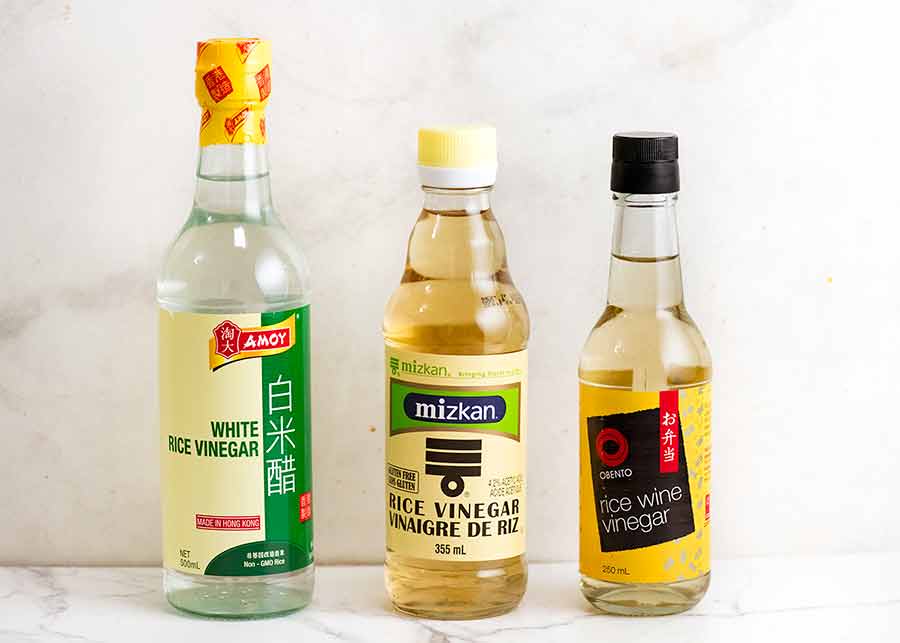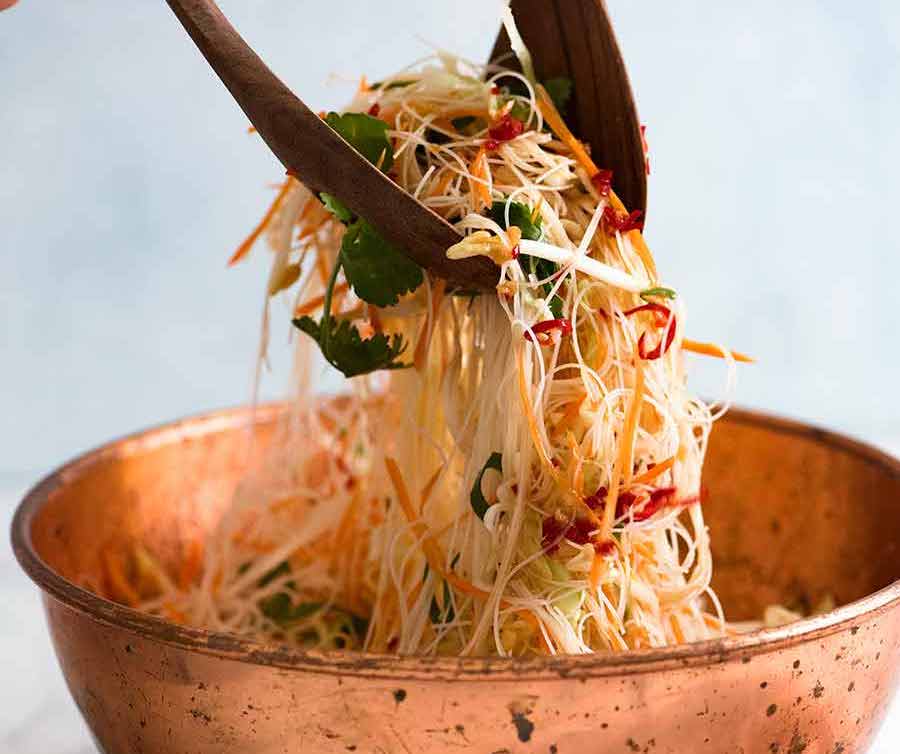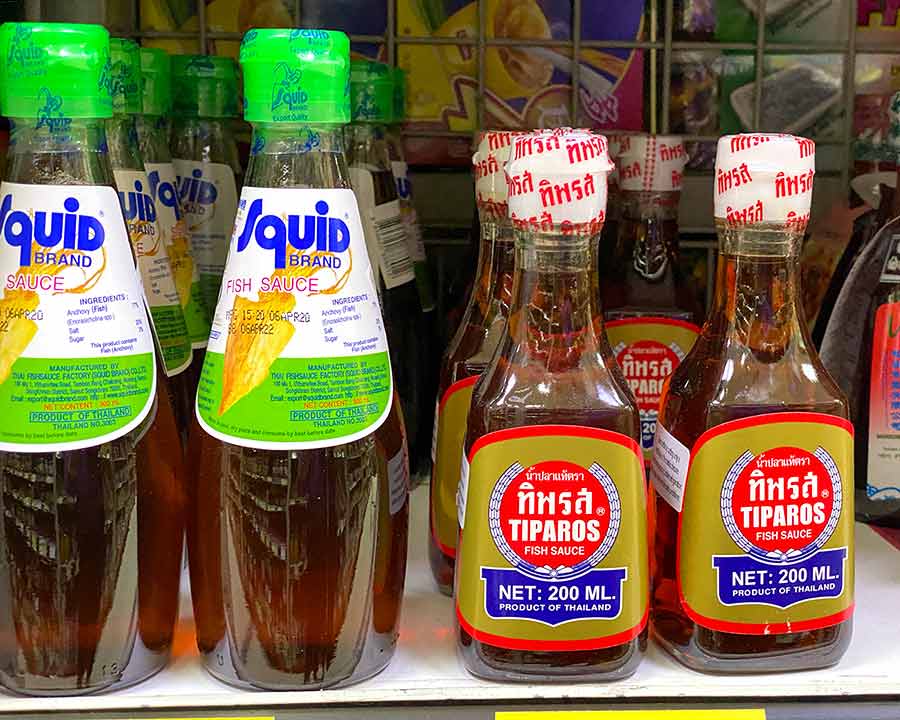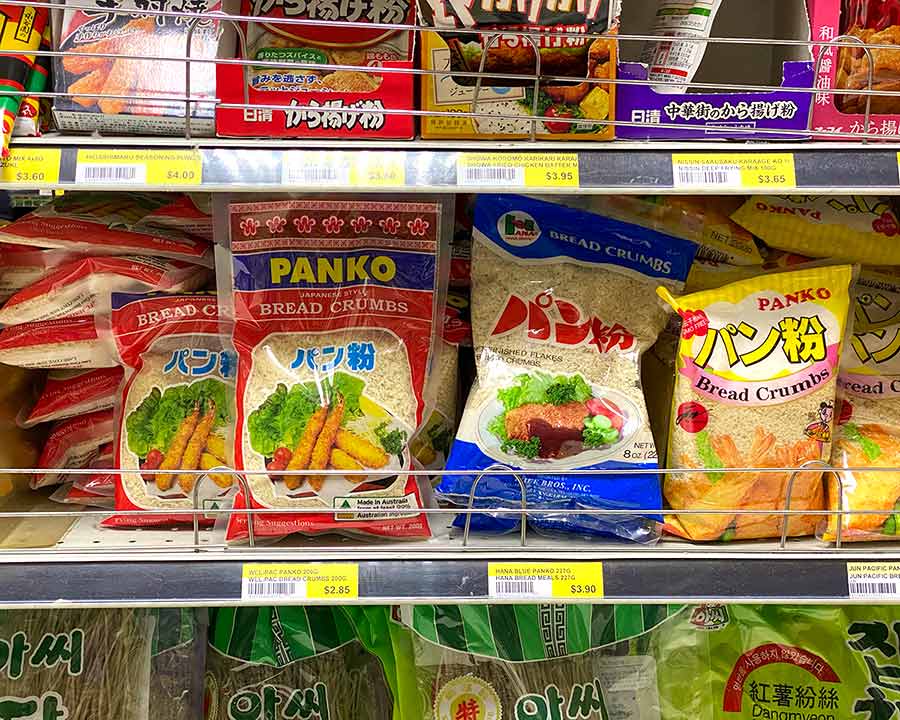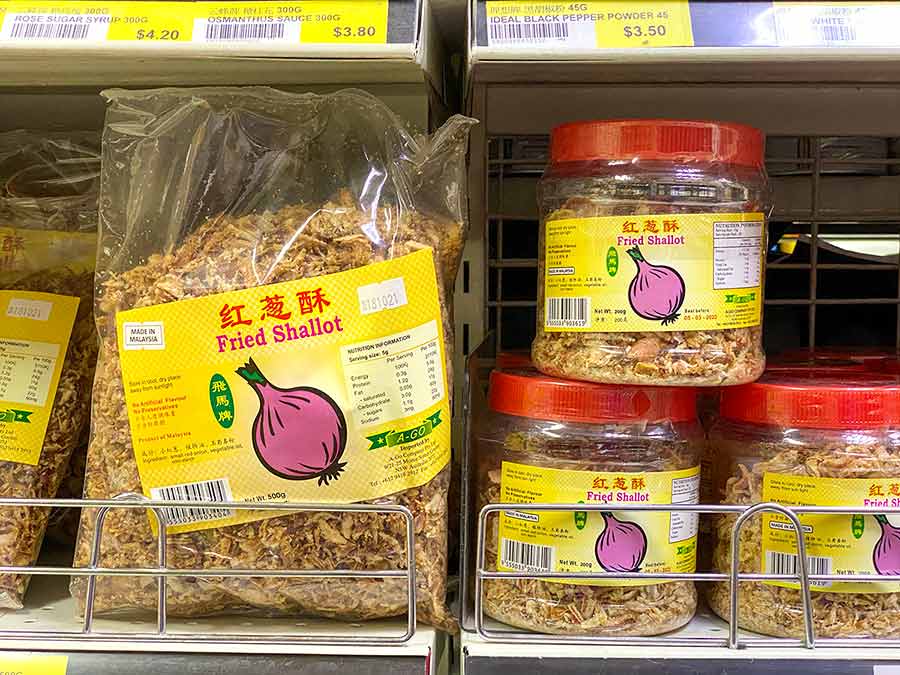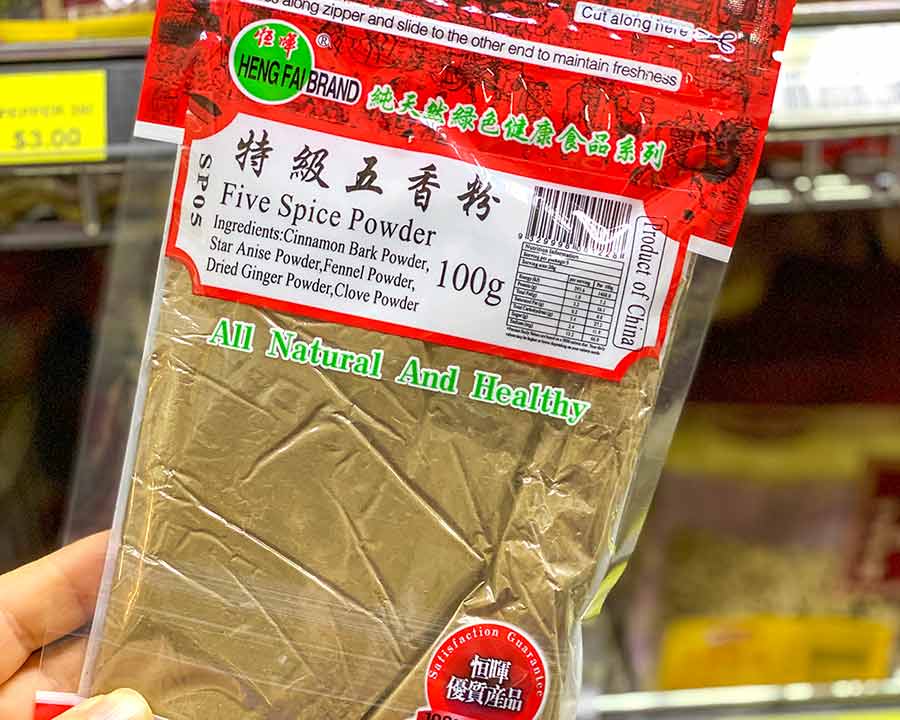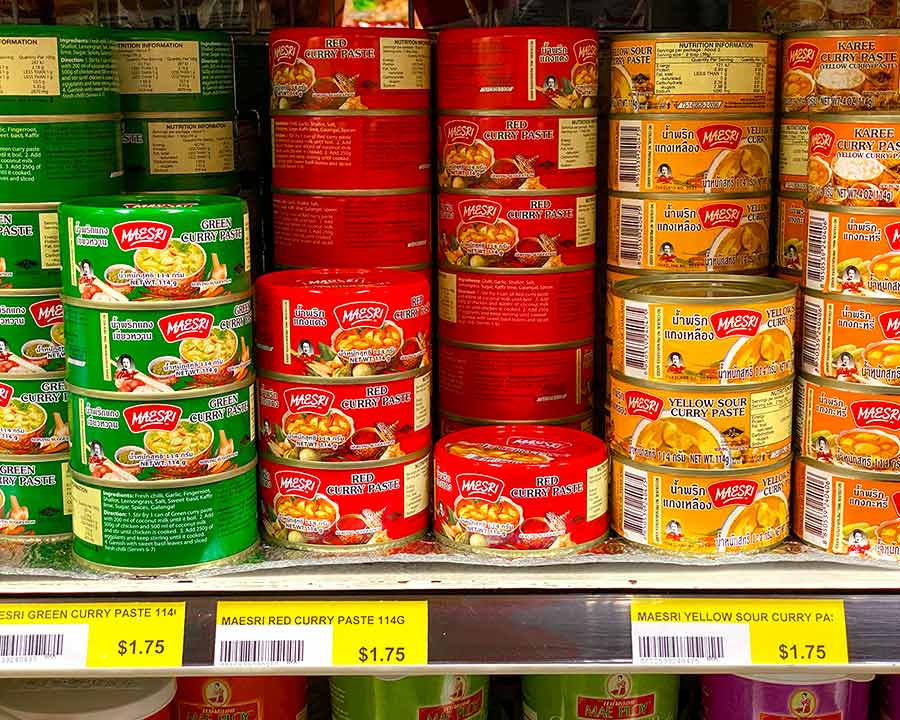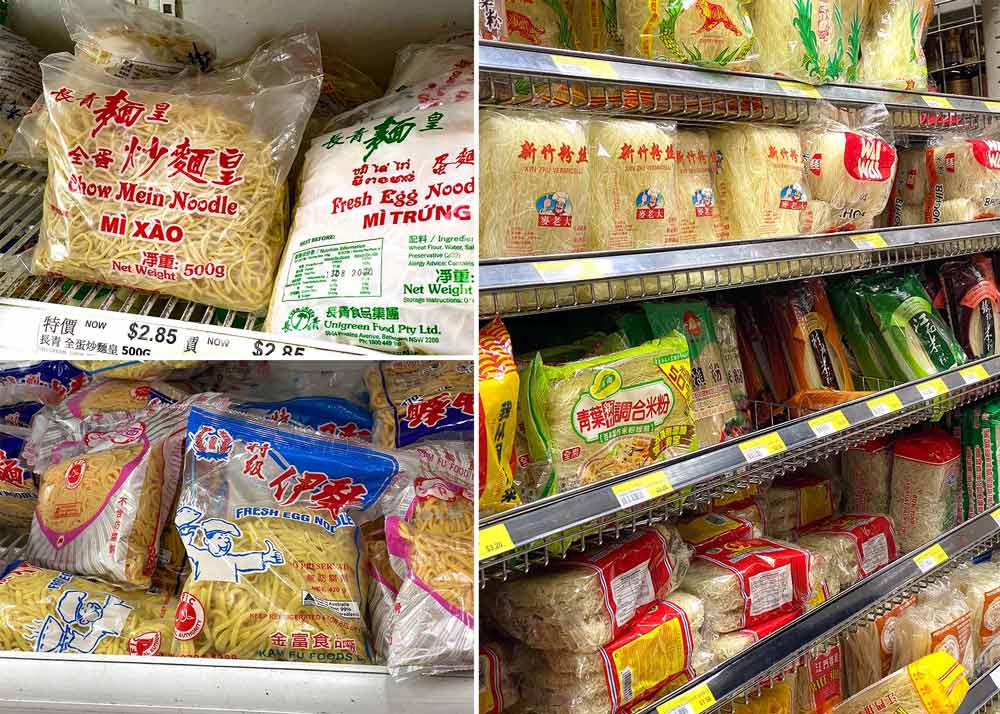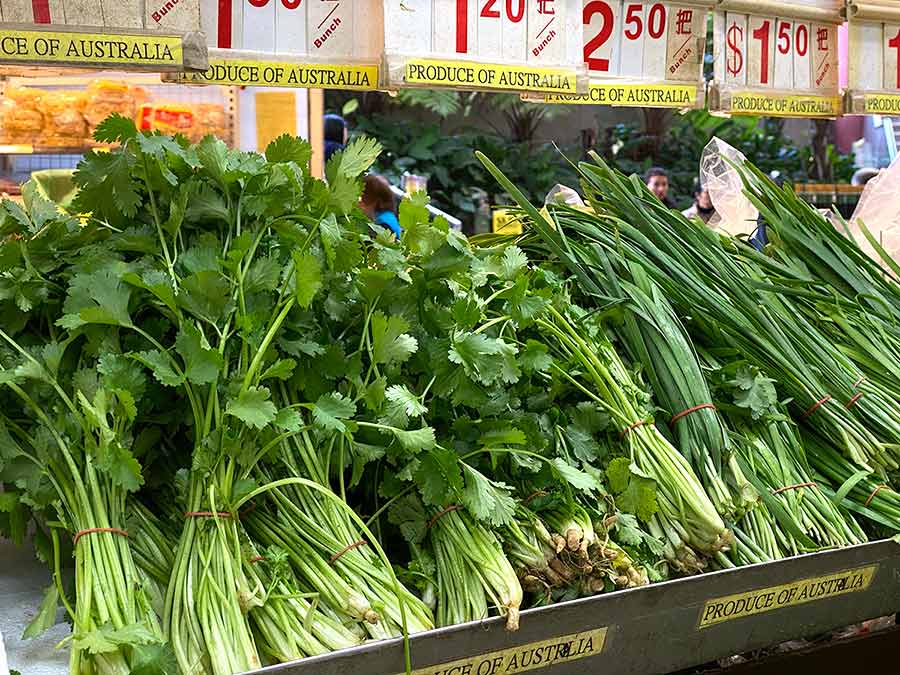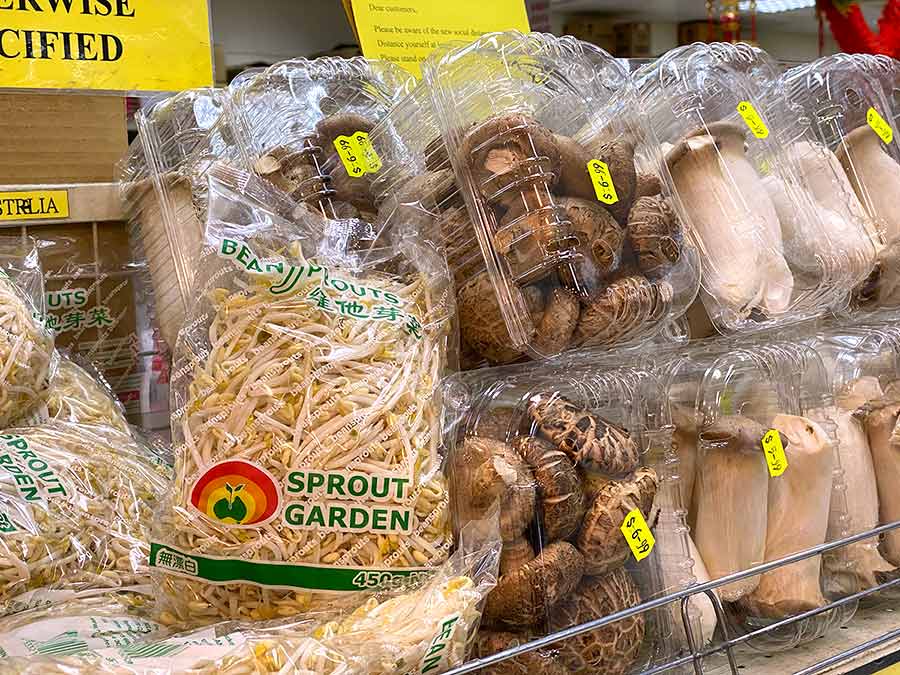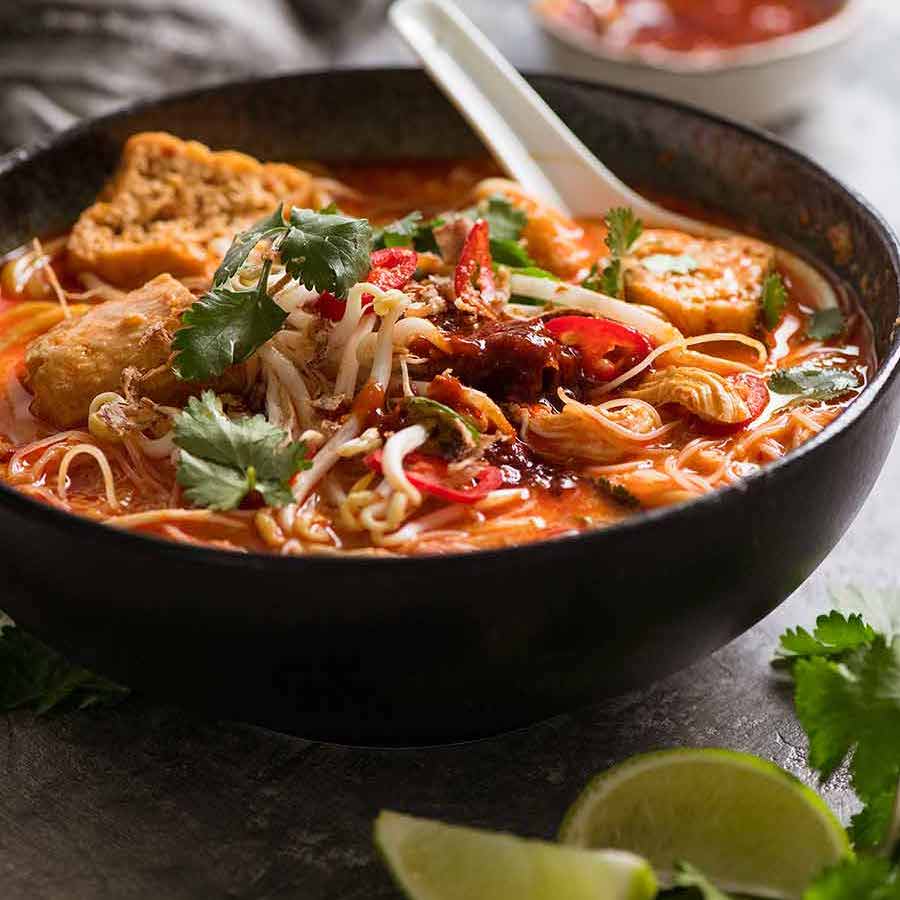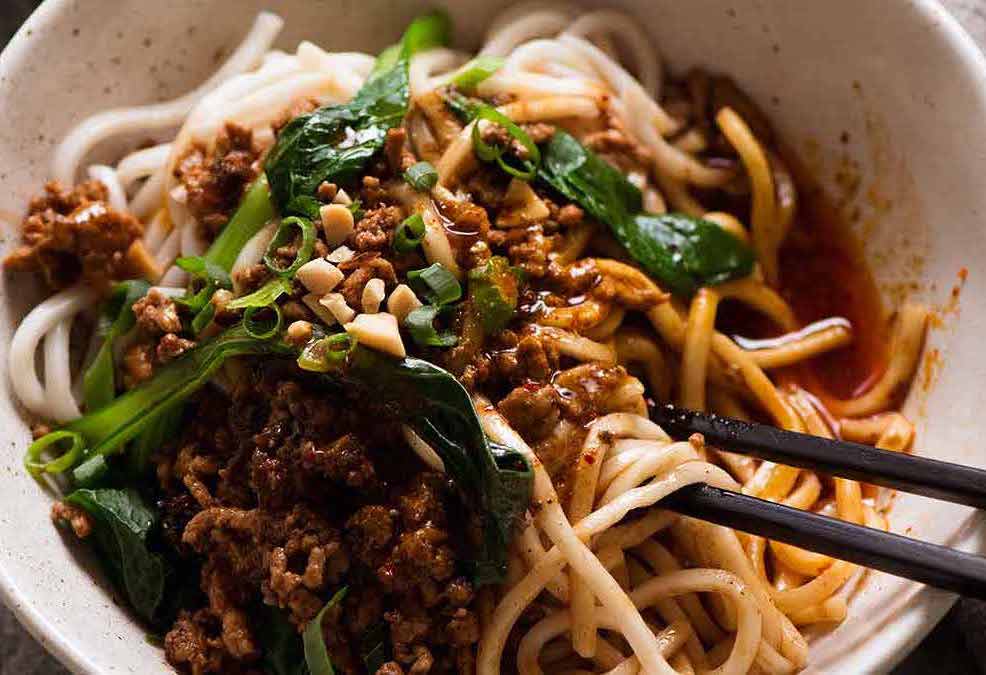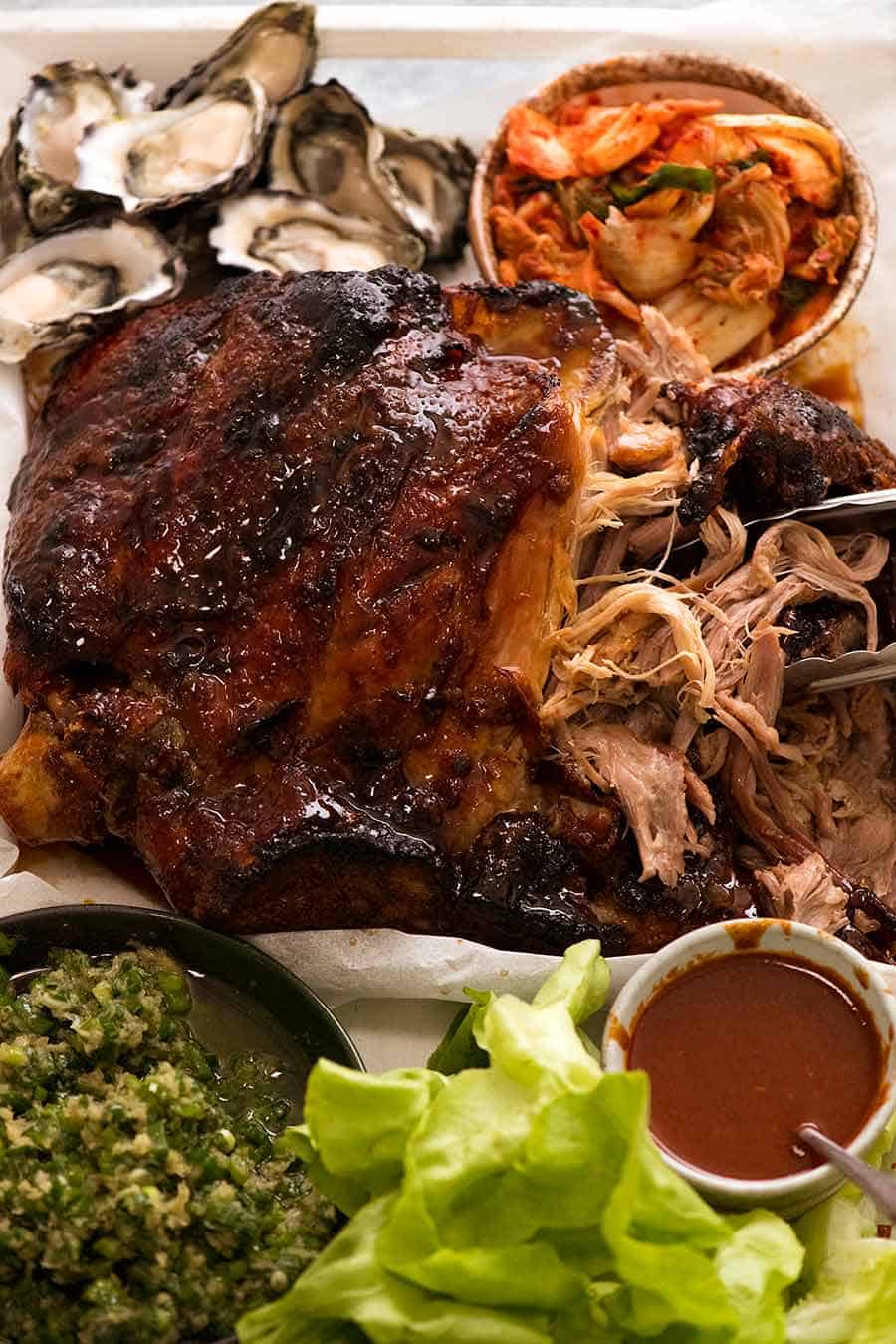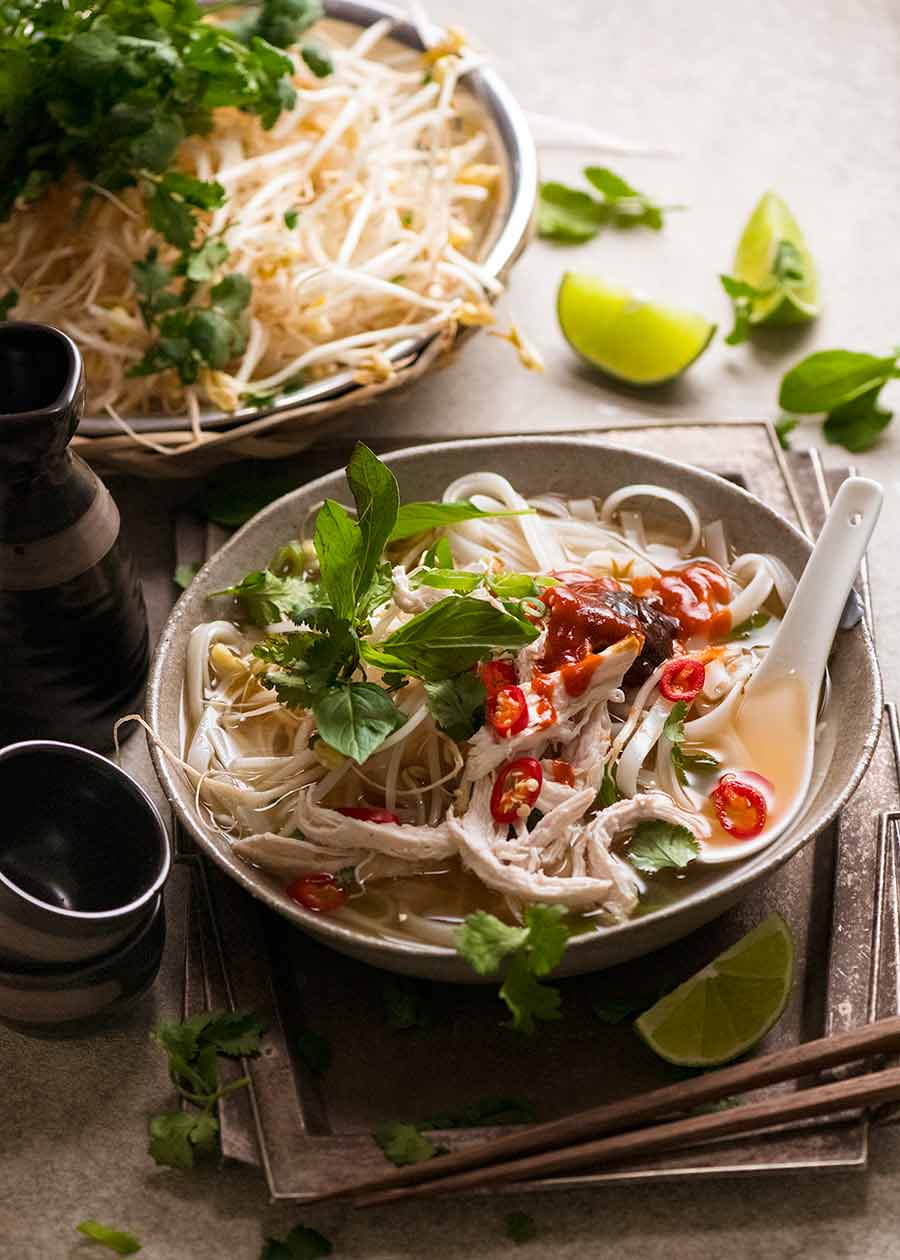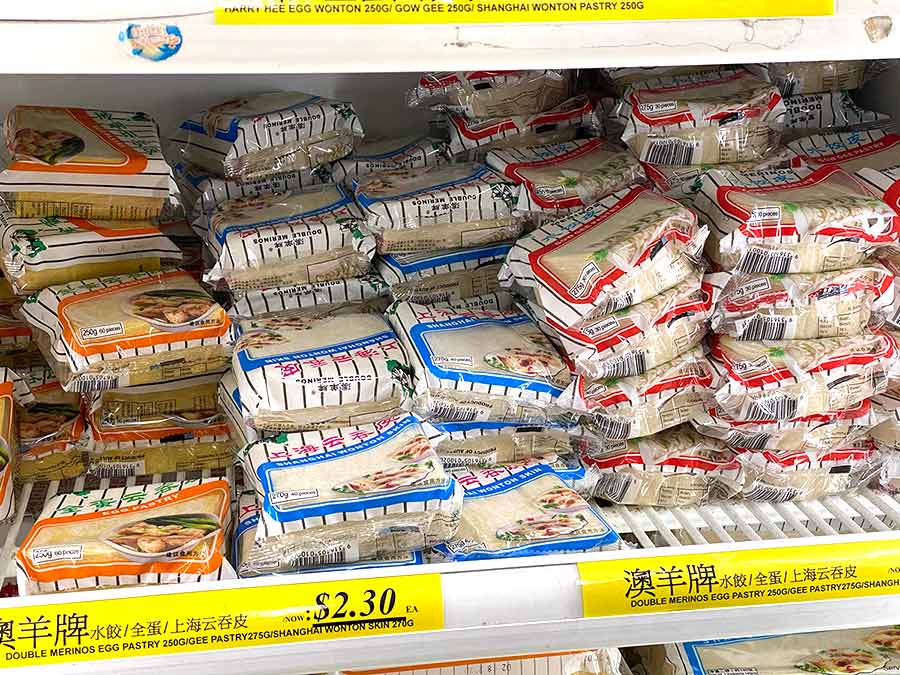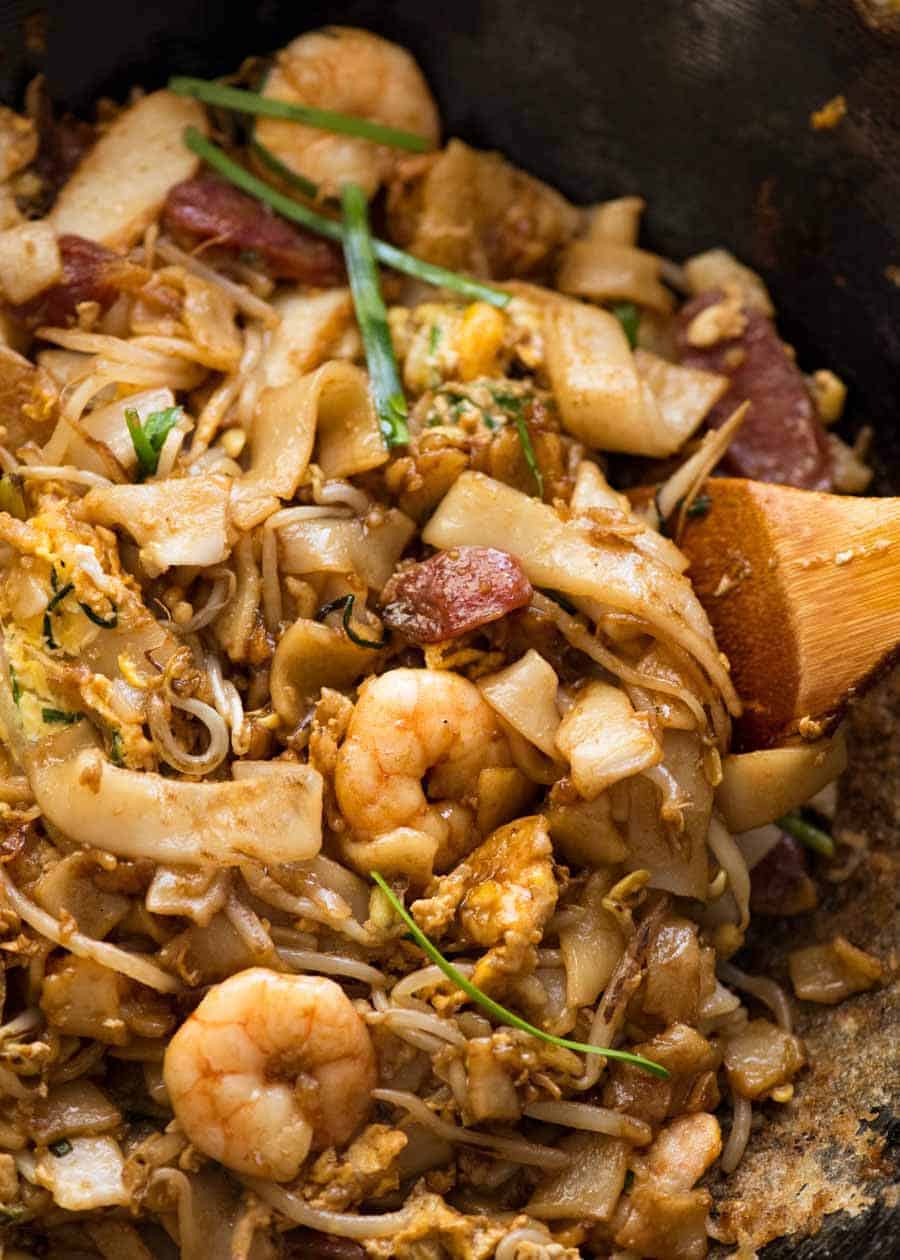There’s over 45 recipes that use 6 core Asian sauces that cost ~$12 in total. Can you guess what they are? 🙂 My closest proper Asian store is a 30 minute drive away. So keeping my pantry stocked with Asian essentials requires some semblance of organisation. The good news is, making Asian food is actually less of a mystery than you think, with a handful of sauces that make an appearance over and over again. So Asian pantry stocking is actually quite straightforward! There’s a shockingly extensive list of dishes you can make with 6 core sauces: light and dark soy sauce, oyster sauce, hoisin, sesame oil and Chinese Cooking wine. These are the 6 core sauces of Asian cooking: The above sauces are by far the most commonly used ingredients in my Asian recipes. Nowadays you’ll find them all at large grocery stores in metropolitan areas in Australia (Woolworths, Coles, Harris Farms). But Asian stores are a sure thing – and cheaper! And here are all the recipes that you can make using just those 6 sauces. Even I was surprised when I started rounding them up!
Master recipes
Stir Fries
Noodles
Cheeky tip: If you’ve got a great sauce, you can even make noodles using spaghetti. People don’t even realise it’s pasta! Shhh, keep this secret to yourself!
Proteins – seared, roasted, grilled
Rice dishes
Other – soups, lettuce wraps, salads
These are my next priority items, things that make me feel insecure if I’m out or running low. 😂 Mostly sold at everyday large grocery stores, but some of these items are MUCH cheaper at Asian stores, so I always stock up!
1. My favourite Chinese Chilli Paste – Fuyun
Recommended to me by an Asian grocery store owner many years ago (“ahh yes, the best! You will like!”), and I have never looked back. It’s got more flavour than most chilli pastes, and I use it for everything from adding a hit of spice into Stir Fries and Noodles, adding to dipping sauces for things like Pot Stickers, dolloping onto all Asian soups, into salad dressings for a dash of heat. I am dead set loyal to it – I have strayed on occasion and have been so unhappy I’ve ditched almost full jars (and food waste really upsets me). It costs about $3 and depending on how much of a chilli fiend you are, it will last for months – years! Very, very long shelf life.
2. Rice vinegar
Made from rice, this is the vinegar used in Asian cooking, for everything from Asian salad dressings to sauces and marinades. It’s not as acidic as Western vinegars – which means for salad dressings, you can get away with using less oil. All brands I’ve used (even from everyday grocery stores) are fine for general purpose, but I usually stick to Japanese brands – Mizkan, Marukan or Kikkoman. Larger bottles are cheaper at Asian stores. Used in pretty much all Asian salads – Asian Side Salad, Salmon Salad, Asian Slaw, Vermicelli Noodles – as well as the acid component in sauces for recipes such as Beef Soba, Tuna Poke Bowl, Bimbimbap, Sesame Noodles.
3. Mirin
This is the Japanese equivalent of Chinese cooking wine. With just a small amount, it can transform sauces from hmm, it’s missing something… to YES! This is it!! because as with all cooking alcohols, it adds complexity and depth to anything you add it to. I use it in far less recipes on my website than I do in real life because it’s an essential sauce in Japanese cooking – find all my mother’s Japanese recipes on RecipeTin Japan! However, it’s very handy to have because it’s a near perfect substitute for Chinese cooking wine (which makes an appearance in 90% of my Asian recipes). Here are recipes on my website that are specifically made using Mirin:
4. Fish Sauce
An essential sauce in South East Asian cooking (Thai , Vietnamese), this is soy sauce on steroids. The fish provides extra umami and though some people find it a bit funky when used raw (like in Vietnamese dipping sauces), once cooked down it just transforms into incredible depth of flavour with no sign of fishiness at all. I use the Squid Brand (bright green cap, you can’t miss it at the shops!). It’s used in practically every single Vietnamese recipe (like Caramelised Vietnamese Pork Bowls, dipping sauce for Rice Paper Rolls) and most Thai recipes (like Thai chicken marinade, Thai Red Curry) .
4. Panko breadcrumbs
30% – 50% cheaper at Asian stores (the price at normal grocery stores can be offensive!), anything breaded/crumbed is better made with Panko because they’re bigger than normal breadcrumbs so you get way better crunch. Used for all these recipes – mostly non Asian!! PS I also use it to sprinkle on anything for a touch of crunch – like Baked Mac and Cheese, Broccoli Casserole – as well as mixing into things like Chicken Burger patties.
5. Crispy Fried Shallots
Almost half the price at Asian stores, these are crispy, salty and crunchy and make a frequent appearance as a garnish / finishing touch on Asian dishes (especially salads). Think of it like Asian pangritata – it just makes everything better! Used in: Laksa, garnish for Asian Side Salad, Salmon Salad, Asian Slaw, Beef Soba, Ham Congee, Vermicelli Noodles.
6. Chinese Five Spice
Common spice found in ordinary grocery stores, this is a mix of 5 spices (I know, shocking right? 😂) that is used in Chinese cooking. Adds a hint of Asian exotic. Used in well known dishes like Beef and Broccoli, Char Siu (Chinese BBQ Pork and Chicken), Dan Dan Noodles as well as these incredible Sticky Chinese Wings.
7. Maesri brand curry pastes – red, green and massaman
If you’re a regular reader, you are sick of hearing me say that this curry paste is by far the best available – and also happens to be the cheapest! Used in all these recipes:
8. Noodles
While you can get a decent range of noodles at grocery stores nowadays, fresh and dried, I always use a trip to the Asian market to pick up specific noodles I want for a specific Noodle dish I’m craving. Quite often it’s Chow Mein using proper Chow Mein noodles. These items are less frequently used but it’s irritating when I realise I don’t have them. The reality is, all these items are available at large grocery stores nowadays but I try to just get them as part of my regular Asian grocery store run.
- Kecap Manis* (sweet soy sauce) & Sambal Oelek (chilli-garlic paste)* – used in Indonesian dishes: Also used for the sauce of the iconic Char Kway Teow (you also need other speciality items so see the Dish Specific section) and this very popular Malaysian Chicken Satay Curry and the noodle salad version.
- Sichuan Pepper – ground, because I’m lazy and can’t be bothered grinding my own – and Asian stores carry good ground Sichuan pepper. Non Asian stores tend to carry sub par quality. Use for Kung Pao Chicken, spicy Sichuan Dan Dan Noodles (see Level 5 dish specific list).
- Tamarind Puree* – paste like sour condiment. Primary use is for Pad Thai, also used in small quantities in Massaman Curry and Beef Rendang Curry.
- Dried Shiitake Mushrooms* – packs a great punch of umami even in small quantities! They are used in the following recipes:
- These items are usually sold in large everyday grocery stores in metropolitan areas in Australia. Whenever I go to an Asian store, I use that as an opportunity to get a stash of perky Asian greens and herbs – better and cheaper at Asian stores compared to everyday grocery stores! There’s a few things in particular that are FAR better quality and value:
Lemongrass – cheaper! Used in a load of South East Asian dishes – Thai / Vietnamese:
Coriander/cilantro – waaaay cheaper and perkier. Use in all things Mexican / Tex Mex / South Western / South American / Thai / Vietnamese / Middle Eastern / Indian. Thai Basil – key ingredient in Thai Basil Chicken and Pad Kee Mao (Thai Drunken Noodles) as well as a highly recommended topping for Beef and Chicken Pho, Thai Red and Green Curry. Garlic Chives – a uniquely garlic flavoured chive that is used in Gyoza. Beansprouts – Western grocery stores just don’t know how to store beansprouts! They are always floppier and stinkier than they should be. At Asian stores, they smell incredibly fresh and they are SO crunchy! Always stock up (pro tip: put in water in a container, change water every 1 – 2 days. Lasts a week). Use in: Chow Mein, Chop Suey, any stir fry or noodles, Vermicelli Noodle Salad, this quick Peanut Stir Fry, Beef Ramen Noodles, Chinese Chicken Salad, Asian Slaw.
Asian Mushrooms – bountiful, good quality, great flavour (puts button mushrooms to shame) and excellent value. Use in any stir fries, stir fried noodles, slice and cook up in butter with garlic, use for this Mushroom Rice or Mushroom Risotto (you will weep it’s so good); Chinese greens – because they’re cheap, crisper and better quality: buk choi, choi sum, pak choy – use in any stir fries, stir fried noodles, or most Asian Soups (even as an add in for extra greens), chopped and added into fried rice; Chinese Broccoli – specifically called for in Pad See Ew (Thai Stir Fried Noodles) / Chinese Broccoli with Oyster Sauce (Yum Cha / Dim Sum style); and Kimchi – because it’s terrific diet side dish / snacking food (yep, I eat it straight out of the tub to curb tummy grumbles). Also a specific side recommendation for all Korean dishes, and the fridge-leftovers star of Kimchi Fried Rice!
In this section, I’m going to flip it the other way and list some iconic dishes that I regularly get a craving for which calls for a specific trip to an Asian store to get the necessary ingredients!
buk choi, choi sum, pak choy – use in any stir fries, stir fried noodles, or most Asian Soups (even as an add in for extra greens), chopped and added into fried rice; Chinese Broccoli – specifically called for in Pad See Ew (Thai Stir Fried Noodles) / Chinese Broccoli with Oyster Sauce (Yum Cha / Dim Sum style); and
buk choi, choi sum, pak choy – use in any stir fries, stir fried noodles, or most Asian Soups (even as an add in for extra greens), chopped and added into fried rice; Chinese Broccoli – specifically called for in Pad See Ew (Thai Stir Fried Noodles) / Chinese Broccoli with Oyster Sauce (Yum Cha / Dim Sum style); and
1. Laksa
This iconic Malaysian coconut noodle soup has a BIG cult following all around the world. Rich, fragrant and with complex flavours, key to this recipe are a good laksa paste and tofu puffs along with herbs and noodles, all of which are from Asian markets.
2. DAN DAN Noodles (Spicy Sichuan Noodles)
“I need spicy asian food!!!” A pitiful sounding wail that is a regular occurrence around these parts (emitted by me, in case it wasn’t obvious). And Dan Dan Noodles tops the list. This famous spicy Sichuan noodle dish is topped with pork and has a chilli laced sesame sauce ladled over it. One word – EPIC! To make this, you will need a few things from Asian grocery stores: Sui Mi Ya Cai (pickled greens – it’s a Dan Dan specific thing), Chinese Sesame Sauce and Chilli Oil, as well as a few items in the Essentials list above.
3. Momofuku Pork Bossam
This is a famous dish from David Chang’s Momofuku restaurant in NYC. It’s an epic centrepiece consisting of slow cooked pork with an insane caramelised crust, served with condiments for DIY fully loaded Korean lettuce wraps! Momofuku charges US$250 for the privilege of eating it. It costs a fraction to make at home – and the only Asian store items you’ll need are Gochujang & Ssamjang (Korean pastes) and kimchi to serve on the side!
4. Beef Pho
Vietnam’s most famous food export requires lots of bones to make a truly great broth – and the best value place to get them is Asian markets! You’ll also need lots of fresh Asian herbs for toppings (Thai Basil, coriander/cilantro – also use these for Chicken Pho) as well as other incidentals like rice noodles.
5. DUMPLING WRAPPERS!
Who doesn’t love little bundles of joy in any form – steamed, pan fried, crispy fried?? While some wrappers are sold at large grocery stores, safest to get everything you need at the Asian market – and make these! ↓↓↓
6. Char Kway Teow
“Ballsy!” was the response by one reader when I shared this recipe! This is one of the most iconic noodles dishes of the world, known for its big flavours, the elusive combination of charred, sweet and savoury, as well as all the “stuff” in it – Chinese sausage, shrimp/prawns, fish cakes. This is probably the standout recipe on my blog that requires the most individual items from the Asian store just to make a single dish – but it’s worth it! This really is a special dish, and most places outside of Asian-centric areas do it very poorly. WOAH. That is a LOT of good food right there! 😂 I hope that gives you some semblance of help for your next Asian grocery store run. Especially for those of you who, like me, have a fair drive to get to an Asian store! – Nagi x
Life of Dozer
Dozer would be offended if I left him out of today’s post just because it’s not a recipe! Here he is keeping me warm…or so you think. In actual fact, he’s sprawled all over me because the treat jar happens to be sitting right next to me…. Shameless! (And I don’t even know if I’m referring to me or to him 😂)
